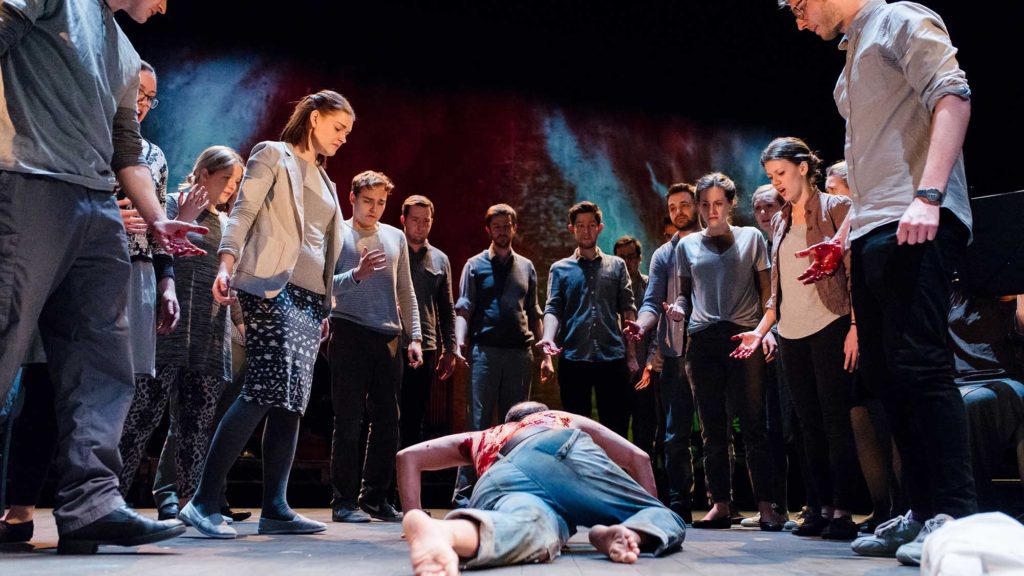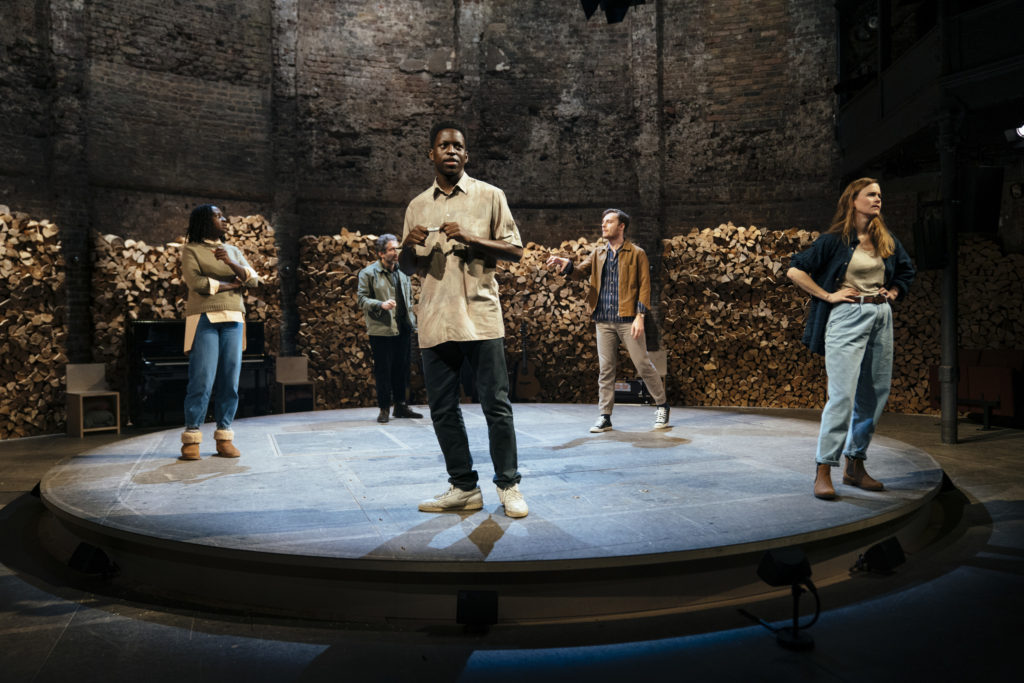VIEWPOINTS – Facing adversity, together: Bristol Old Vic’s MESSIAH and the Almeida’s NINE LESSONS AND CAROLS
- By drediman
- December 31, 2020
- No Comments
To close out this decimated year, I chose to stream a pair of somber productions from across the pond – both reflective, clear-eyed monuments to an unprecedented 2020. Nowhere in sight were the comforting lessons of yet another Christmas Carol nor the sweetness of the umpteenth Nutcracker. Instead, these works offered no easy answers as they grappled with this most adversarial of years. Happy New Year.

MESSIAH
Bristol Old Vic
On-demand through February 28
First up was Tom Morris’s production of Handel’s Messiah (HIGHLY RECOMMENDED) for the Bristol Old Vic, the oldest operating theatre in Britain (in fact, the oft-performed oratorio made an appearance at the venue way back in 1782). Although Mr. Morris’s semi-staged version last played the historic theater in 2017 – at which time it was captured on film – it seems more relevant today than it ever was.
Leave it to Mr. Morris – who co-directed the award-winning stage adaptation of War Horse – to bring drama and specificity to the beloved oratorio. His staging depicts a community under moral and existential duress. As the members of the community contemplate their dilemma (via Handel’s sublime composition), their struggle yields to hard-won salvation through faith and each other. The adaptation also calls to mind Wagner’s opera Parsifal, in which a crumbling society is tenuously saved by a misunderstood and mistreated outsider (Mr. Morris boldly casts a disabled actor in this pivotal role).
Although much focus was placed on theatricalizing Messiah, the music-making here was nonetheless superlative throughout. Led expertly by Harry Bicket, the renowned English Concert – which specializes in baroque music – played Handel’s familiar score with freshness and grace. Additionally, the game choristers of the Erebus Ensemble, a young and spirited choral group, were called upon to both sing and dramatically represent the community, which they took to with relish and moving commitment.
I suspect that viewing the staging on my computer screen doesn’t do justice to the in-person experience. Mr. Morris’s production is as much ritualistic immersive theater as it is classical music concert — types of performance that can only be fully appreciated in person. In the past, I found similar types of hybrid performances of oratorios – namely, Peter Sellars’ 2014 production of St. Matthew Passion with the Berlin Philharmonic at the Park Avenue Armory and Deborah Warner’s 2000 staging of St. John Passion for English National Opera – to be transcendent, spiritual experiences specifically because of this intrinsic communal aspect.

NINE LESSONS AND CAROLS
Almeida Theatre
On-demand through January 2
After months of laying dormant due to the global pandemic, London’s well-regarded Almeida Theatre was set to reopen in November with Nine Lessons and Carols (HIGHLY RECOMMENDED), a meditation on loneliness and grief, as induced by the pandemic and the isolation it has required of all of us. The good news is that the devised piece actually got to open, despite having to follow stringent health guidelines during the show’s development (e.g., the cast and creative team had to be tested twice a week for COVID-19). Unfortunately, the show had to shutter abruptly as London’s theaters once again entered lockdown.
Structurally, the work is made up of a series of vignettes that, when taken together, form an emotionally jagged tapestry. Thanks to Chris Bush’s acutely attuned writing, the chilly rawness that pervades the work is never less than authentic, despite the fact that much of the material is fictional. Peppered throughout are gorgeous new songs by Maimuna Memon (Ms. Memon also appears in the ensemble) that provide aching commentary on the difficult and unresolved circumstances the characters find themselves in. Ms. Memon’s introspective set of songs is the heartbeat of the production, guiding the show like the sole beacon in the darkest and longest of nights.
Like Tom Morris’s work in the aforementioned Messiah, Rebecca Frecknall’s understated direction – with its nod to social distancing practices – was meant to be experienced in person. Thankfully, we have a facsimile of that experience available to us in the form of the film capture, which effectively documents the ensemble’s deeply invested, courageous contributions to the project. Nevertheless, I can only imagine the kind of impact a piece like this imparts on an audience when experienced communally, as it was intended to be.
Now onto 2021.

 Copyright © 2025
Copyright © 2025
Leave a Reply